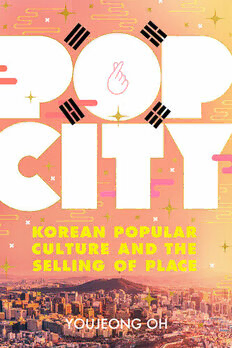
Pop City: Korean Popular Culture and the Selling of Place PDF
02018·1.762 MB·English
Most books are stored in the elastic cloud where traffic is expensive. For this reason, we have a limit on daily download.
Preview Pop City: Korean Popular Culture and the Selling of Place
Description:
Pop City examines the use of Korean television dramas and K-pop music to promote urban and rural places in South Korea. Building on the phenomenon of Korean pop culture, Youjeong Oh argues that pop culture-featured place selling mediates two separate domains: political decentralization and the globalization of Korean popular culture. The local election system introduced in the mid 90s has stimulated strong desires among city mayors and county and district governors to develop and promote their areas. Riding on the Korean Wave—the overseas popularity of Korean entertainment, also called Hallyu—Korean cities have actively used K-dramas and K-pop idols in advertisements designed to attract foreign tourists to their regions. Hallyu, meanwhile, has turned the Korean entertainment industry into a speculative field into which numerous players venture by attracting cities as sponsors. By analyzing the process of culture-featured place marketing, Pop City shows that urban spaces are produced and sold just like TV dramas and pop idols by promoting spectacular images rather than substantial physical and cultural qualities. Popular culture-associated urban promotion also uses the emotional engagement of its users in advertising urban space, just as pop culture draws on fans’ and audiences’ affective commitments to sell its products. Oh demonstrates how the speculative, image-based, and consumer-exploitive nature of popular culture shapes the commodification of urban space and ultimately argues that pop culture–mediated place promotion entails the domination of urban space by capital in more sophisticated and fetishized ways.
See more
The list of books you might like
Most books are stored in the elastic cloud where traffic is expensive. For this reason, we have a limit on daily download.
